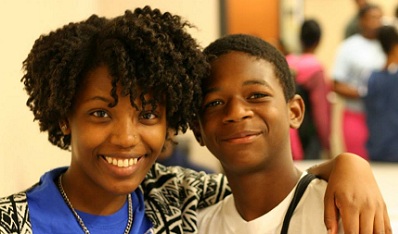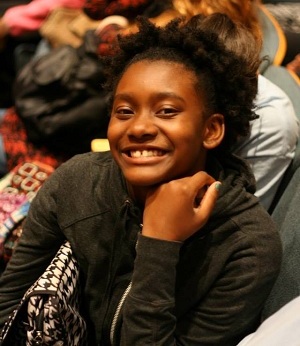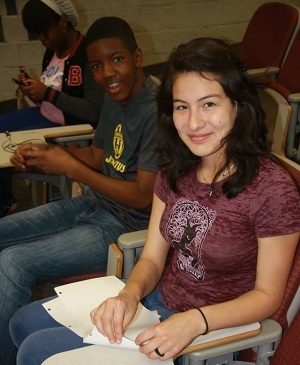Our Philosophy
The Math Corps is guided by a six-part philosophy that filters through all of its programs:
A Sense of FamilyFrom the outset, students are made to feel important, that they belong to something very special, and that staff truly cares about them as individuals. The structure and nature of the program cultivates strong big-brother/big-sister relationships among students at all three levels – middle school, high school, and college.
High Standards and ExpectationsAll students are expected to meet high academic standards regardless of past performance. As a way of channeling students to be the best version of themselves, we expect and know they will always be present, punctual, respectful (in both behavior and language), and with homework completed daily. The importance of hard work and academic success is stressed constantly, and achievement is publicly acknowledged on a daily basis. Success becomes the rule, not the exception.
Math, Math, MathMathematics is viewed as paramount and the notion that mathematics can be interesting and even fun is espoused and readily accepted. Beyond the regular classroom instruction, mathematics is also presented via games, competitions, investigations, art, music, special projects, and computer - based activities.
Challenge Rather Than RemediateAs a result of the program, students come to view mathematics as a sense-making activity at which they themselves are quite capable. While the content provided is focused on typical middle school fare, the approach is through the relationship of that content to higher mathematics. For example, common fractions are addressed in the context of topics such as infinite series or fractals. When prime numbers are presented, the Goldbach Conjecture is discussed. Thus, the debate over teaching basics or providing enrichment is sidestepped. Both are essential.
Learning in Groups and through Exploration and DiscoveryWith a strong emphasis on mathematical problem solving and exploration, student activities incorporate group learning, open discussion, and cooperation with one another. The cooperative aspect is strengthened by the use of a team approach and the promotion of a family atmosphere.
Students Teaching StudentsStudents at each level interact with others who are a bit further along in their mathematical development. Learning is two-way: younger students learn from older students who become natural role models and who support them in ways that reach well beyond the realm of academics; older students, through their tutoring and mentoring activity, deepen their own understanding of mathematics while, and perhaps even more importantly, boosting their self-esteem.


